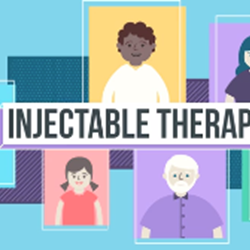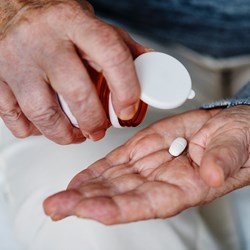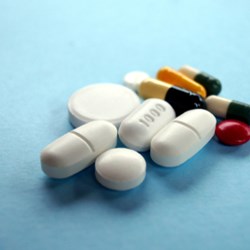Medication - Non-insulin Drugs
There are lots of different medications that can be prescribed for someone with type 2 diabetes. Not all treatments are suitable for everyone so your diabetes care team will work closely with you to find the one that works best for you.
Medications may be tablets, non-insulin injections, and insulin injections. Injections have improved significantly over the years, with pens replacing the syringes and needles of the past. These pens have tiny disposable needles and are much less painful than other types of injection.
To find out more about treatments for type 2 diabetes, take a look at My Type 2 Diabetes online course or the resources below.
Advanced Search
Resource type -
Language -
Type of diabetes -
This video provides information and guidance on non-insulin injectable medications.
This resource provides information on the various types of non-insulin tablets and injectables available to help you control your diabetes.
This page provides information on the effects steroids can have on your blood glucose levels
DPP-4 Inhibitors (gliptins) are a class of medications that are commonly used to treat type 2 diabetes. This resource explains what they are, how they work and provides information for people taking them.
GLP-1 Analogues, also known as Incretin Mimetics, are a class of medications that are commonly used to treat type 2 diabetes. This resource explains what they are, how they work and provides information for people taking them.
SGLT2 inhibitors are a class of medications that are commonly used to treat type 2 diabetes. This resource explains what they are, how they work and provides information for people taking them.
Sulphonylureas are a class of medications that are commonly used to treat type 2 diabetes. This resource explains what they are, how they work and provides information for people taking them.
Metformin is one of the most commonly used medications for the treatment of type 2 diabetes. This resource explains what Metformin is, how it works and provides information for people taking it.
This leaflet explains how steroids affect blood glucose levels, how to manage any changes in blood glucose levels and how to reduce and stop steroid treatment.










